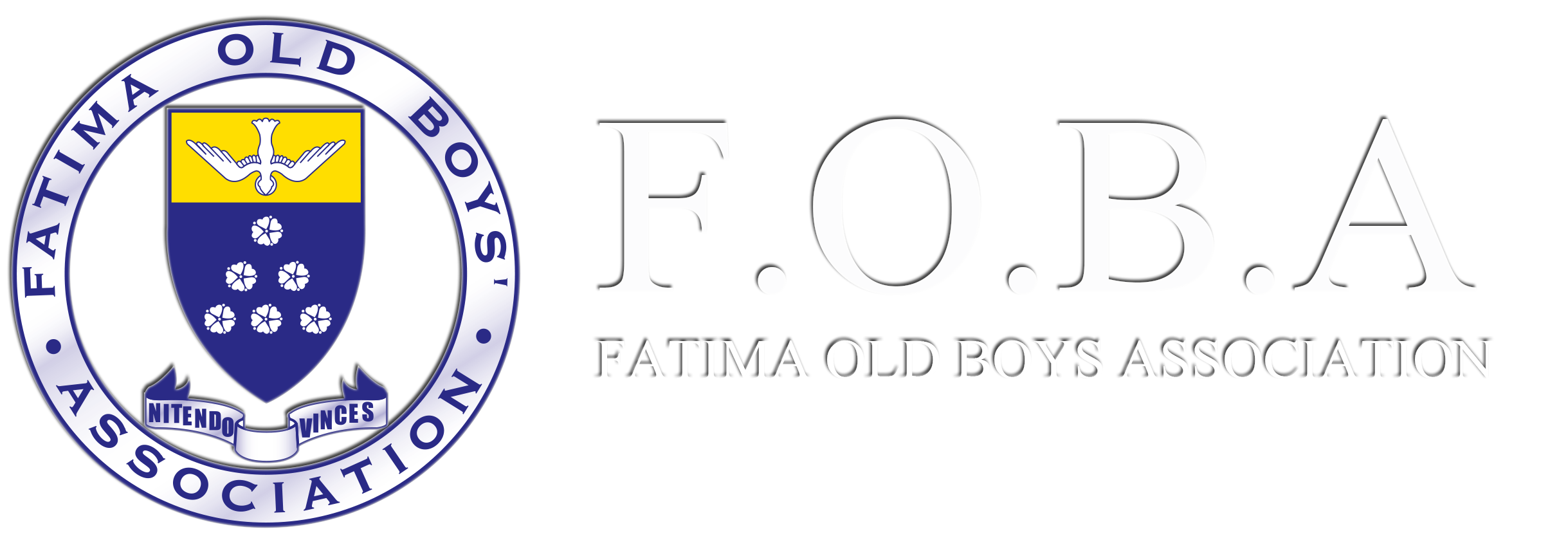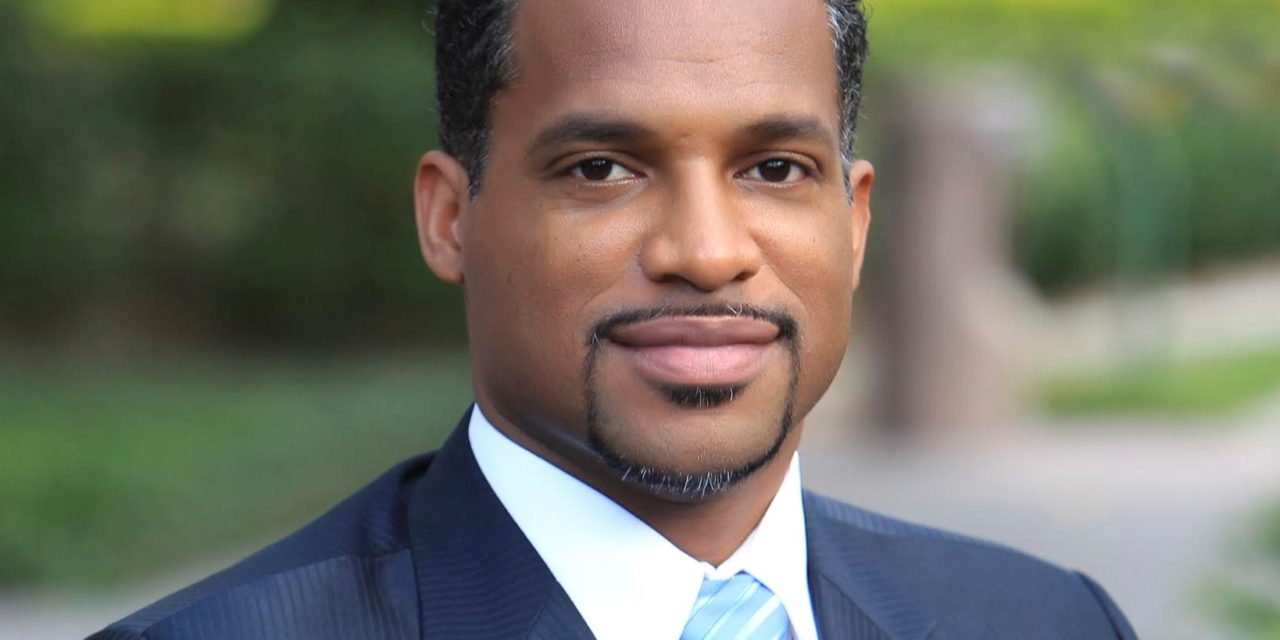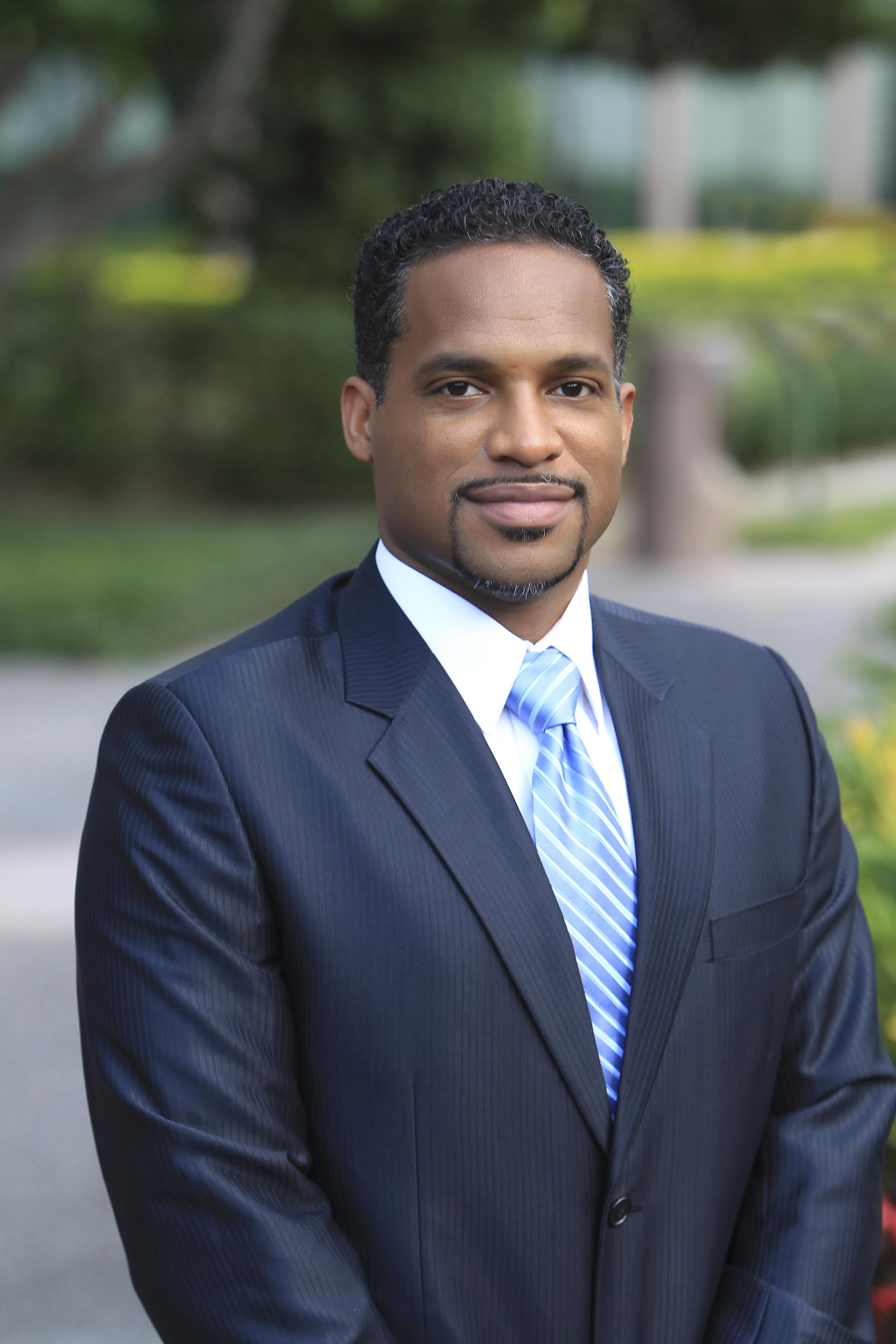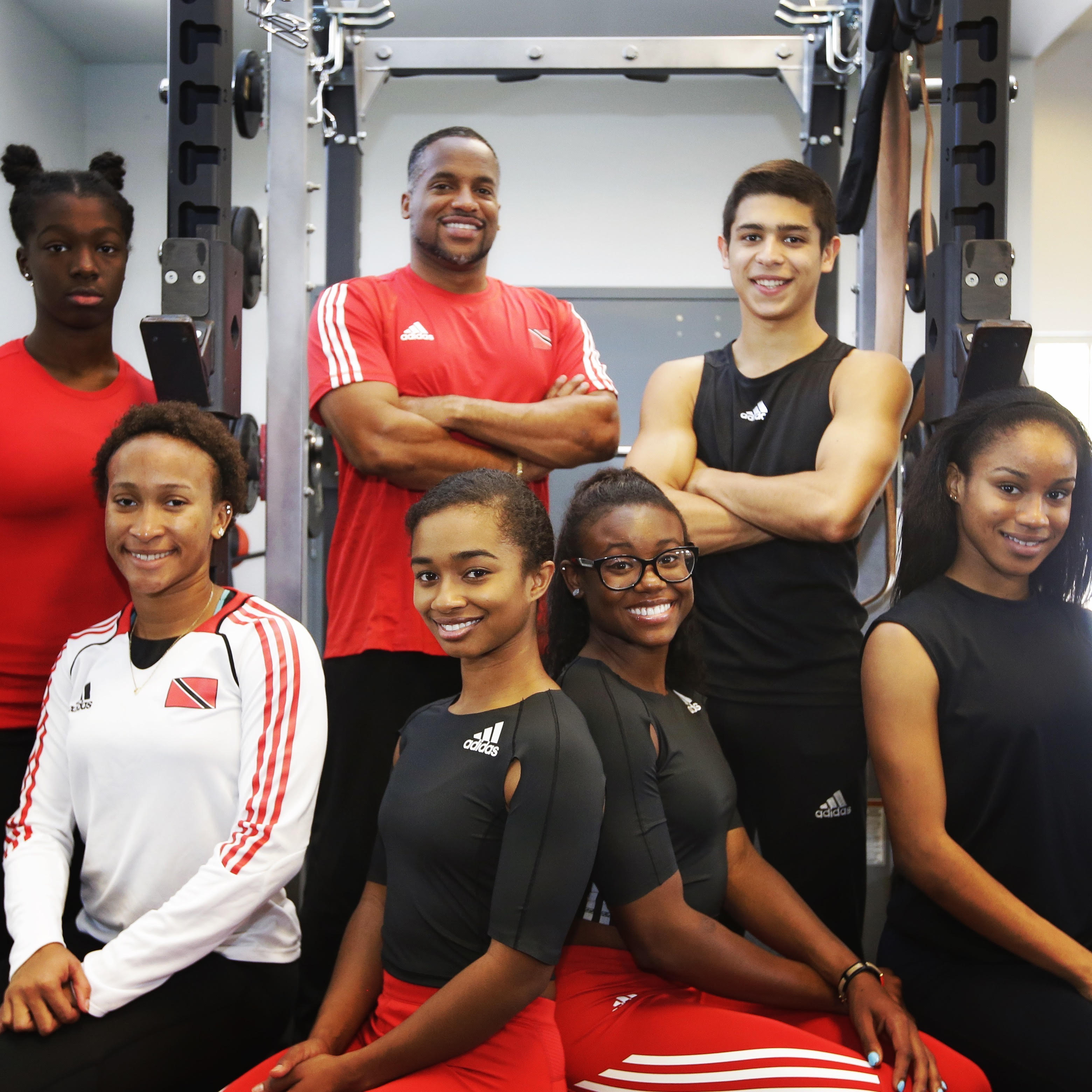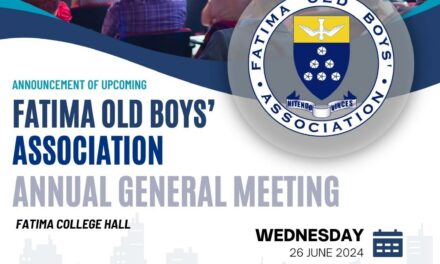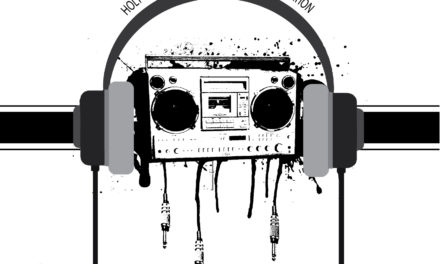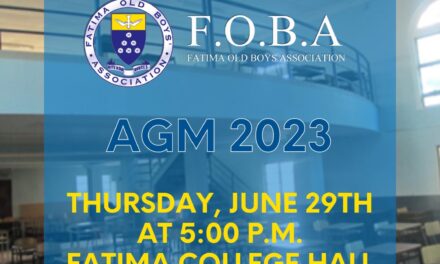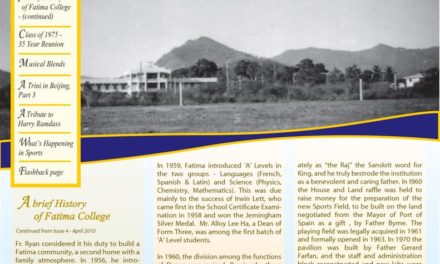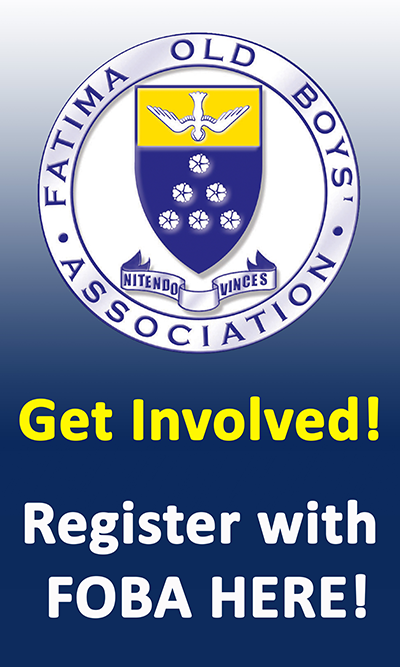- Views 5808
- Likes 2
Interviewer: Raymond Samms
Q: What primary school did you go to?
A: Newtown Boys’ RC, where the worst two things you could do is run, and talk too much. It’s actually going to be the title of my autobiography someday – “SHUT UP AND SLOW DOWN”.
Without my communication skills and my running ability, I might have starved. There is a lesson in there somewhere for other children, I think.
Q: Why did you select Fatima?
A: My father went to CIC and won an intercol football title there, in 1956, so it was initially to go elsewhere, to a place where I could be my own person. My mother was not keen on my attending a school in the middle of downtown, either. I also made that choice because most of my closest friends were headed there. St. Mary’s wasn’t even one of my choices.
Q: Did you spend time in Jamaica as a child (Mother is Jamaican) – Is your Jamaican DNA part of your success? Or imported yams?
A: I wasn’t in Jamaica that much, as a child. I embraced my Jamaican side much more as an adult, in terms of their culture and history. I remind Jamaicans who try to claim that my sprint prowess is OBVIOUSLY because of my Jamaican DNA that Trinidad and Tobago won the Olympic 100m gold in 1976, 32 years before Usain Bolt.
Q: What year did you leave Fatima? You left TT and Fatima at the age of 14 (Form3?)
A: December 1988. I had spent 3 months in Form 4 already. I joke that I left before I had to take any serious exams. Lucky me.
Q: Describe the culture of the school in your time?
A: First XI team was doing well, so they were the big men on campus. Lara was excelling at cricket. Adrian Bobb was a Carifta medalist. I remember the young men who were “all-rounders” – those who excelled at multiple sports as well as studies, being the people who were to be respected and admired. Back then, corporal punishment was a serious thing, and a big deterrent – the good old days. Now the inmates run the asylum, at some schools I visit.
Q: Who was your favourite teacher and which teacher did you give the most trouble?
A: Favourite teacher was probably Mr. Maurice Brash. He did wonders for my confidence, getting me into acting and singing (very few even know of this). Mr. Ramdass and Mr. Joseph (RIP) were also right up there in seeing in me things I couldn’t see in myself.
Q: How did Fatima influence your athletic career?
A: Positively. I was never good enough to be one of the best at anything. Football and track were my loves. Even in running, I was always eighth best, which meant last place come sports day. I got frustrated. I have a distinct memory of not showing up for the 100m finals of a sports day, as my name was repeatedly called on the loudspeaker to report for the final. If you’d told anyone, on that day, that I’d be the country’s first world sprint champion just a decade later, they’d have had you committed to an institution. My athletic gifts came late – after I’d moved to the USA.
Q: What house were you in for Sports’ Day and how many times did they win?
A: We never won. We were awful. Green shirt. Can’t remember the name. The House that wore red (Corcoran?) used to kill everybody else on sports day back then. I thought it was a rigged system. By the way, when am I getting a house? I have one at Newtown Boys’.
Q: What is the worst mischief you got up to at Fatima?
A: That will go with me to my grave. Young men often do dumb things. I was no exception. I’ve given Fatima money, so I am sure I’ve more than re-paid it.
Q: Did you do any other sports at Fatima?
A: Cricket was never my thing. Still isn’t. Too slow. Football and track were always the only sports I cared about.
Q: What part of Fatima life do you miss the most?
A: The liming. Everyone reminisces about their “boy-days”, but I also realize that I grew up at a time when to live and grow up in Trinidad was a true blessing.
Q: Are you still in touch with classmates?
A: I went to three different high schools – in Trinidad, New York and California, and somehow (maybe because of Facebook) I am in touch with way more of my high school classmates, from all three schools, than people would expect.
Q: When and why did you decide to do athletics professionally?
A: By age 18, I’d made the Olympic team and appeared to have a future in the sport if I so chose after winning two world junior sprint titles. Once I’d finished at UCLA, broken the NCAA 100m record and run the world’s fastest 100m time, by June of 1996, the Atlanta Olympic year, it was a formality.
Q; If track was never an option for you, or you weren’t successful, what career would you have taken up?
A: My music-industry friends say I would have made a good sound engineer, because I have a good ear, but I’d like to think I’d have probably been an attorney, or a sports agent.
Q: You joined the NBC Olympics broadcasting team in 2008 and some people referred to you as NBC’s best announcer at the recent Rio Olympics. How have you evolved/grown since you first started working at NBC and how much longer do you see yourself working there?
A: That compliment was given by awfulannouncing.com, a site that exists to expose awful broadcasting in the USA. It’s one of the high-points of my year, and a good sign for the Emmy nominations next year. Nothing can truly prepare you for being on-air. Certainly ot the first time something goes awry during a live broadcast. I listen to my broadcasts from 8 years ago, and the difference is staggering. Having been a broadcaster since 2005, I eventually found my own voice. I know exactly what I want to say, and how to say it. I didn’t learn that for some time.
Q: How did you prepare for your task of commentating at the 2014 Olympic Winter Games in Russia?
A: I knew that was really just a reward by NBC for having become the first US track and field broadcaster to get an Emmy nomination, so I thought it would be easy work. It was, mostly. Cold sometimes, In 2018 for the Winter Games in South Korea, I am sure they will challenge me to o much more, which is what I prefer.
Q: Were you more pleased with your performances at the 1996 or 2000 Olympics?
A: Sydney 2000, because I had to overcome so much more. In 1999, I had missed the world championships with an injury, and never really felt like I was 100% recovered in 2000. I was also dead last in my last pre-Olympic race. Somehow, I found a way to get medal #3 and #4 from Sydney. I’m still waiting on an upgrade of that fourth medal, since the Olympic 200m winner, Kenteris, of Greece, was soon found out as a drug cheat, and banned.
Q: Is there an Olympic or World Championship result that still pains or disturbs you even today?
A: The Atlanta 1996 Olympic 100m final. The second recall gun (that was very late) on what, even today as an analyst, looks like a fair start to me, as well as my lack of composure with all the Linford Christie drama, before the final race was actually run. It’s the only race I’d want to re-run from my entire career.
Q: Which Olympic medal felt best?
A: Bronze from the Sydney Olympic 200m final. I had considered dropping out of the 200m rounds altogether, because I had no desire to leave the Olympic stadium on a stretcher. It was cold in Sydney, and my hamstring was not holding up well after the 100m final. I decided to do it, and got my fourth career Olympic medal.
Q: You once battled the idea that you suffered from ‘final-itis’ after failing to strike gold in a couple key races. Did you ever come to a conclusion on that by the end of your career?
A: I DID have ‘final-itis’, but not what I thought it to be in my early career. I thought nerves led to me underperforming. It wasn’t nerves, because I was always very calm and confident. What I did do, to my detriment, is constant analysis. I had a very good sense of what everyone in the race was likely to do, that night. That’s great, now that I am a broadcaster, but it was not the way to approach races as an athlete.
Q: Would you have ever beaten Usain Bolt in your prime?
A: Never. He’s lost to four people since 2008. Tyson Gay, Asafa Powell, Justin Gatlin and Yohan Blake, all of whom have run 9.7 or 9.6 for 100m.
Q: Now that Usain Bolt has retired, whom do you see as the runner to now take up the mantle as world’s fastest man?
A: The next world’s fastest man I don’t think is necessarily someone who we already know about. People say Canada’s DeGrasse, or the USA’s Trayvon Brommell, but I’m not so sure. Those are good guesses. In 2004, few knew who Bolt was. Four years later, he’d arrived – and he hasn’t lost an Olympic race since. In 2012, no-one knew who Elaine Thompson of Jamaica was. She’s now 100 and 200m Olympic champion. The much safer guess is that he will be either from the US or the Caribbean.
Q: What would it take to beat Usain Bolt?
A: The four men who have beaten him, since 2008, have caught him when he’s having an off-night, had a great start against him, and then had the poise to hold him off when he starts to close late in the race. That’s the only way.
Q: Are you still friendly with Maurice Greene?
A: Maurice and I last spent time in Boston in June of 2016. He’s married now, with a young son. We don’t talk like we did as training partners before, but he and I will always be friends.
Q: What was your training schedule like for the Olympics.
A: Weightlifting, often debilitating pain, and stress… and I remember very little of it. The medals, the records and the memories are there forever (well, most of the records are gone). I remind my young athletes that the suffering is part of it. They have to embrace that, because that fades from memory. You’re a champion forever.
Q: Describe the perfect 100m race.
A: I don’t think it’s been run yet. Usain Bolt and Asafa Powell, the last two world-record holders, have probably come closest. If I had to pick one race, it would be the 9.58 WR by Bolt in 2009 in Berlin. He looked like he could keep going for another 100m, easily.
Q: The sport is increasingly challenged by the use of Performance-Enhancement Drugs (PEDs) by athletes chasing superior performances or attempting to defy the effects of aging. Were you ever faced with this dilemma in your thoughts or even offered PEDs in person?
A: I lived and trained in Los Angeles. All the new gimmicks and fads and diets usually start there. People always think the drug thing was some guy in a trench-coat offering you something in a brown bag. It wasn’t. It looked more like someone visiting our practice, which was open to the public, with some supplement his company had developed that was going to change the world, that he said you just had to try – because it would change your whole life. As my former agent used to say, you were fast before they found their way to your practice. I knew I couldn’t ever think of using anything, because I never wanted to be an outcast in TNT, and being from a small island, I would never have had some of the ‘big-country protections’ from drug busts that we have seen revealed since the years when I ran.
Q: Comment on the state of Trinidad athletics today as compared to when you were at the height of your career.
A: Carifta results are much worse, Olympic results are about the same. Grassroots development is almost non-existent. We are still relying on others (usually foreign coaches) to generate our stars, mostly. We do less, despite having more resources.
Q: You are currently coaching TT female sprinter Khalifa St. Fort. Are there any other TT runners that you have in your radar as future stars?
A: In Khalifa’s absence, Sarah Wollaston won the under-20 Junior title in 2016, won a Carifta relay bronze and made the World Junior Team. She’s now in her 2nd year with me, and I think will have a good career for TnT. I have also signed a 400m runner, Kelsha Fortune, who is from Tortola, but has a Trini mother and will compete for TNT. Kelsha moved from Tortola to South Florida to train under me. Look for her in 2017. In the next three years, I expect to have about ten young TNT nationals, training under me. I’m at three already. Since Rio, there have ben lots of Caribbean parents calling me up and asking to send their kids.
Q: Why is Jamaica’s athletic programme so successful?
A: The combination of great coaches, the best high school system in the world and over 100 years of secondary school athletics tradition is why Jamaica is second to none. The last element is that the Jamaicans figured out around 2005 with the birth of the MVP group that they don’t have to send all their talent to get burnt out at US universities. Bolt, Blake, Powell, Thompson, Fraser-Pryce are all Olympic gold medalists, who stayed in Jamaica.
Q: If you could change one thing in hindsight what would it be?
A: I’d have enjoyed my time at UCLA more. I was so focused on the 1996 Olympics and my impending pro career that UCLA was like a blur. I have very few non-track memories from my time there, and it’s a wonderful place to have attended University.
Q: In February 2006, you were sworn in as a senator representing the Opposition United National Congress. What made you decide to go into politics?
A: I am never happy with nothing to do, and at that point after my career, I was miserable. I had no idea what to do with my life. Broadcasting hadn’t taken off for me, yet. It seemed like a good idea at the time. I was going into the opposition benches, so I thought no-one would say I was doing it for the power. I was there long enough to know I had no business being there. I can do so much more as an individual for TNT than I ever could in Senate. No chance I’ll return, either.
Q: You acquired your pilot’s license in 2005. How often do you fly and where is the furthest you have flown?
A: I have flown the length and breadth of California many times, but lately, with my many hats as coach, broadcaster and IAAF ambassador, I don’t fly as often as I used to. It’s like a driver’s licence – when you first get it, you can’t wait to use it constantly. Soon after, you’re fine having someone else fly you around. I travel for business a lot, but I probably do recreational flying only on my birthday every year.
Q: You are a bit of a techie and even admitted in another interview that when you were a competitive athlete, your hobby was building PCs from the ground up. You were even anointed the world’s fastest geek after making several appearances on Call For Help with Leo Laporte on Tech TV. What’s your favorite gadget these days? Do you use a lot of tech when training athletes? Apple or Samsung or other?
A: Tech is more a part of me than anything. Favorite gadget now is my Oculus Rift. Amazing. I am also on my second Tesla Model S, and what those cars can do, including autopilot, is the closest thing to my favorite childhood show, Knight Rider. Last year, I bought a very expensive and machine called a ‘1080 sprint’ for my training group, that is really a highly sophisticated towing and resisting device that enables sprinters to do what we call over-speed sprinting, which enhances performance.
Q: Who would have been better at the other’s sport? Lara in running, or you in cricket?
A: I’ve seen Brian run. Me, in cricket. I will say, though, that Brian was one of my first sports role models. He and Shaka Hislop. Don’t tell Shaka that, though.
Q: How do you eat your doubles – what is your ‘sauce mix’ and where is your favorite doubles spot???
A: I’m a serious health and fitness person. Doubles might be the worst thing you can eat. Khalifa St. Fort is the doubles queen. In fact, she consumed EIGHT of them at the 2016 Fatima fete last Carnival – and then forgot how to sprint, for a month. True story. I probably haven’t had any in 30 years. Now, if you want to talk roti, THAT we can discuss. Goat. Slight pepper. That’s worth cheating on your diet.
Q: What do you see as the biggest challenge for the young boys of this era and what can Fatima do to help develop them?
A: To be men. This is an era where the young men act more immaturely and more insecurely than ever. It’s become ‘cool’ to disrespect women. I don’t necessarily think that every young man has to be the epitome of chivalry, but the pendulum has swung way too far in the other direction. I would love to see Fatima have a life-skills class, teaching men how to be men – table manners, how to dress, how to comport oneself. I’d volunteer, when available.
Q: In your motivational talks, what impact and message do you try to convey?
A: My usual theme is that your dreams are just that – your own! Too many young people come to me with stories about “how can I possibly keep going or get started when…” ‘this parent didn’t support them’, or ‘this sibling or family member discouraged them’. It happens! Steel your nerve, and make it happen anyway. Everyone who made it didn’t have full support from everyone they held dear. That’s a myth. If you can’t handle some opposition or some detractors, you’re not cut out to make it big, anyway.
Q: Define Success.
A: It’s when you’d still do what you do for a living, even if someone handed you 100 million dollars tomorrow. I came close, recently, to working in entertainment news, in a high-profile job, and I look back now, and realize I dodged a bullet. I’d have been miserable, because, to me, that stuff does not matter in the real world, or in the long run. I get to influence young lives and help make dreams come true on a daily basis, and when I’m not doing that, I’m speaking to tens of millions of fans about something I am very passionate about. No money would make me give up those two things.
Q: Any closing remarks?
A: I went to one of the finest Universities on earth, and, as I said, three different high schools, but the impact that Fatima had on me as a young man is something I am forever grateful for, now that I can look back a little, at age 43. It’s an integral part of who and what I became.
